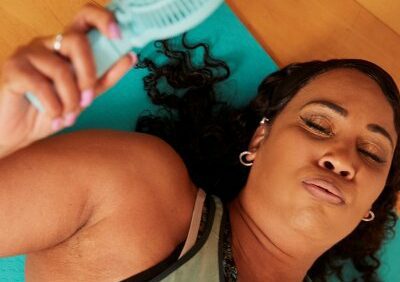Keeping Active during the Menopause
Save this item
Menopause is a complex stage of life, and sustaining fitness and activity at this point is life changing when it comes to dealing with menopausal symptoms and overall wellbeing.
Menopause and perimenopause symptoms can have an enormous impact on your daily life, including relationships, social life, family life and work. It can feel different for everyone. You may have several symptoms or none.
Symptoms usually start months or years before your periods stop. This is called the perimenopause.
The possible signs and symptoms of the menopause include the following.
- Irregular periods – you may get your periods more frequently or further spaced apart, before they stop completely. You may bleed more heavily. Having irregular periods is often an early sign of the approaching menopause but it’s something you should talk to your GP about.
- Hot flushes and night sweats – during a hot flush, your head, face, and neck can become hot for several minutes. At the same time, you may have heart palpitations and feel anxious.
- Joint and muscle pain or stiffness.
- Difficulty sleeping (insomnia) – you may find it hard to sleep because of the night sweats.
- Vaginal symptoms (for example, dryness and itching) – these symptoms are due to your vagina becoming fragile and thinner.
- Loss of interest in sex – the hormonal changes of the menopause can affect your libido. You may also have less interest if you have vaginal symptoms that make you uncomfortable.
- Urinary problems – these symptoms include repeated urinary tract infections and needing to go to the bathroom more often.
How can you help yourself during the menopause transition and reduce the severity of the symptoms associated with the Menopause and improve your heart health, bone health and brain health?
- Strengthening bones and exercise can slow bone loss after menopause, which lowers the risk of fractures and osteoporosis.
- Physical activity and exercise improves mood and body image which in turn can help increases sex drive and satisfaction.
To start, be realistic with your exercise goals. Making a simple plan and try to stick to it. The challenge is to go back to your plan, even if you fall off the plan for a few days due to unavoidable circumstances. Perhaps recruit a friend or relative to help keep you motivated and accountable during this time?
Why not take some time to explore all the different activity ideas that are listed on Everyday Active. We’re sure you’ll find something to enjoy that’ll help you move more during every stage of your life.
 ) located in the address bar to open the share menu.
) located in the address bar to open the share menu.